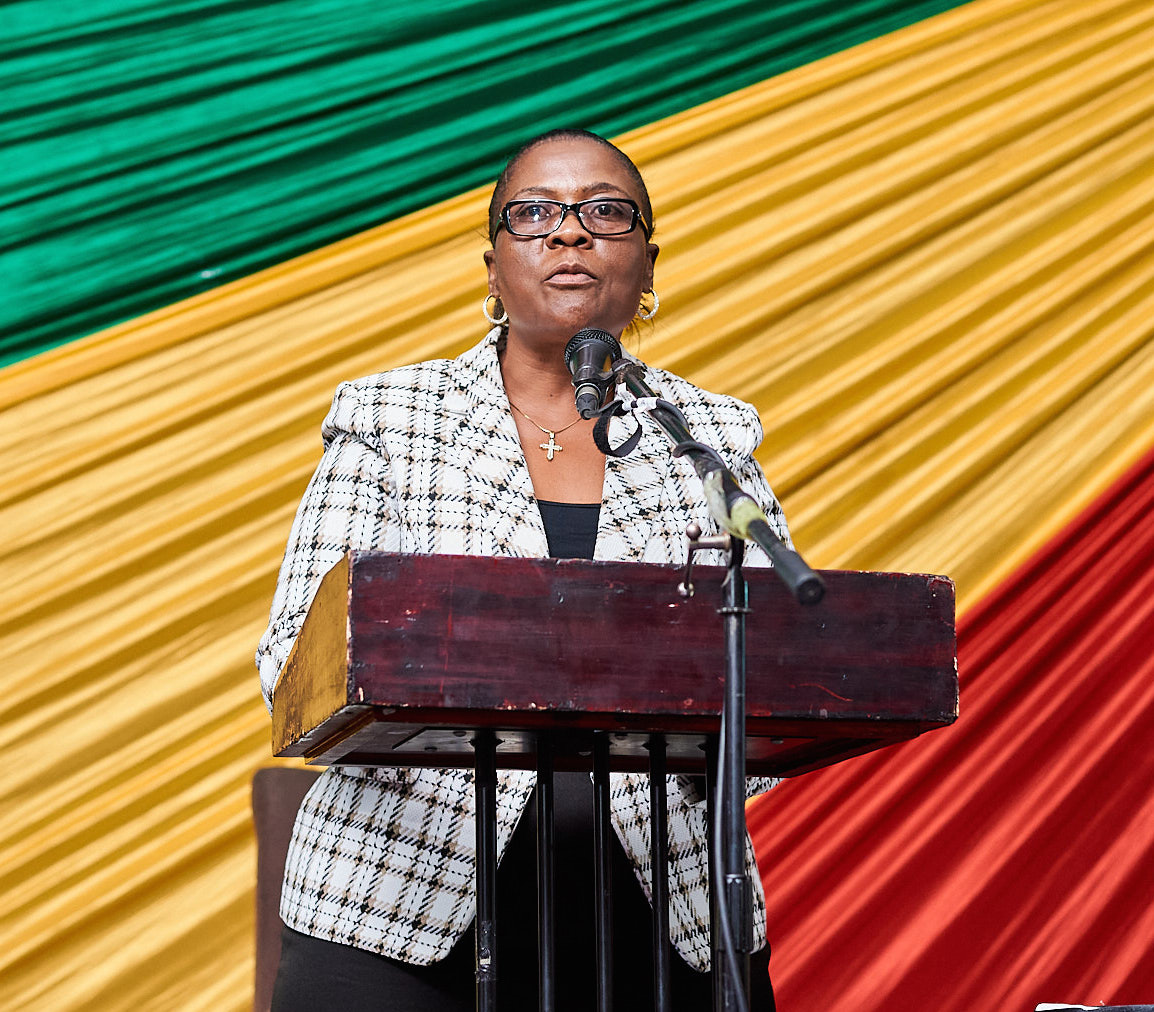|
Getting your Trinity Audio player ready...
|
Zimbabwe is committed to the elimination of violence against women as demonstrated by the willingness of Parliament to join the international community in commemorating 16 Days of Activism against Gender-Based Violence running from November 25, which is the International Day for the Elimination of Violence against Women, to December 10 which itself is a Human Rights Day.
This was revealed by Hon Maybe Mbowa, the Chairperson of the Zimbabwe Women Parliamentary Caucus, at the half-day sensitization workshop for Parliamentarians on the 16 Days of Activism Against Gender-Based Violence at the New Parliament Building in Mt Hampden, Harare on 17 November 2023.
“Over the years, Zimbabwe Women Parliamentary Caucus, as an advocacy and lobby organ of Parliament, takes part in this event to impress across communities on the need to end violence against women and girls. As you may already know, GBV undermines the safety, dignity, and overall health status, social and economic well-being of the individuals who experience it. You will agree with me that Vision 2030 cannot be realized and the mantra of leaving no one and no place behind cannot hold water if GBV is not urgently addressed.
“It is pleasing to note that the Government of Zimbabwe is fully committed to curb GBV. Sections 51, 52, and 53 of the Constitution uphold the right to dignity, personal security, and bodily integrity through freedom from inhuman and degrading treatment. Section 56 reiterates gender equality and non-discrimination while section 80 provides for the protection of women’s rights. Despite these progressive constitutional provisions and laws such as the Domestic Violence Act, Sexual Offences Act, and Trafficking in Persons Act, the rate of GBV is still concerning. According to the 2019 Multiple Indicator Cluster Survey Report, 39.4% of adolescent girls and women aged 15-49 have experienced physical violence since age 15. This rate spiked by over 60 % during the COVID-19 lockdown period according to data presented by the Musasa Project. It is needless to stress that this situation is untenable. Even more worrying is the fact that the majority of the victims are women and girls,” Hon Mbowa said.
In light of these observations, the Parliament of Zimbabwe as a legislative body convened the sensitisation workshop in order to raise awareness and equip parliamentarians with information on gender-based violence and its forms; create a platform for networking, building synergies, and sharing information on what works and craft new strategies going forward; and call for renewed commitment and action by stakeholders, state and non-state actors.
As community leaders, Parliamentarians play a pivotal role in fighting this scourge. They are the role models in their constituencies.
“Thus year’s commemorations are being held under the theme, “Unite! Invest to prevent violence against women and girls.” The theme is even more relevant to us Parliamentarians as we are mandated to make laws for the Good governance of the country. As you are all aware, we are currently in the budget formulation season and the 2024 budget will soon be tabled before us on the 30th of November. In light of that, l would like to take this opportunity to implore us all to follow proceeding so that we all participate effectively and call on the government to invest adequately to curb gender-based violence in Zimbabwe. Huge financial resources are required to strengthen institutions that are mandated to fight this scourge. I will not labour myself in highlighting what needs to be done as our esteemed facilitators will unpack and equip us with the relevant information that will inform the 2024 budget debate,” Hon Mbowa added.
She applauded the “He for She” Champions who have shown their commitment by attending the sensitisation workshop, highlighting the need for multistakeholder collaboration.
Critical in addressing gender-based violence is the Zimbabwe Republic Police’s Victim-Friendly Unit which has a plethora of duties. Chief amongst them are detecting crime; crime investigation; crime prevention; arresting offenders/perpetrators; referral of survivors to other stakeholders; basic counselling to survivors; and crime awareness campaigns.
The VFU also has a duty of escorting survivors to access other services. It holds meetings with stakeholders. In addition, the Unit collaborates and partners with other Government departments, CSOs, and NGOs in many spheres with a view to stopping GBV. The Victim Friendly Unit is a signatory to the Multisectoral Protocol on the Management of Sexual Abuse in Zimbabwe.
According to the Ministry of Women Affairs, Community, Small and Medium Enterprises Development, Zimbabwe is a patriarchal society in which women constitute 52% of the population while women bear the burden of gender-based violence more than men.
The Zimbabwe Multiple Cluster Indicator Survey (MICS) 2019 shows that about 2 in 5 women reported ever having experienced either physical or sexual violence whilst one in ten reported having experienced both. Provinces that reported the lowest prevalence of spousal sexual violence were Matabeleland North (5%), Matabeleland South (6%) and Bulawayo (7%). The top three provinces where women reported having experienced all forms of spousal violence were Mashonaland East (55%), Masvingo (54%) and Manicaland (53%).






